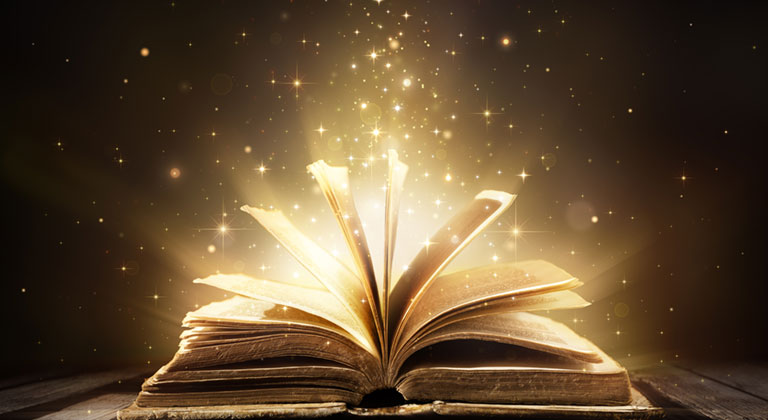Making Magic Work In Your Novels
A convincing magic system can make or break a fantasy novel, and is often the best remembered aspect of the book or series. Growing up, I read a lot of Fantasy – from Piers Anthony’s Xanth and David Eddings’ Belgariad, to Terry Goodkind’s Sword of Truth series or Robert Jordan’s Wheel of Time – I remember these books most fondly because of the rich and diverse magic systems that their worlds were built on. But coming up with those sorts of systems and worlds from scratch is a daunting task that requires a lot of thought and planning, and that’s why we turned to Gail Martin for an article on the subject. Gail is a prolific novelist who is very experienced at coming up with complex and varied magic systems, having done so for many of her own books and series. Here are her tips on how to make magic work in your own novels.
The trick to making magic real to your readers lies in how well you set up the rules that govern how your magic works.
I write epic fantasy, urban fantasy, steampunk/alternate history and comedic horror (and as Morgan Brice, urban fantasy MM paranormal romance). Right now, I’ve got a dozen series that are currently active and published, and all of them involve magic. In each case, the magic is an intrinsic part of the story, not just ‘handwavium’ window dressing. The plot and the character growth hinge on the magic, which is an essential part of the worldbuilding.
Which means I spend a lot of time thinking about how to get the magic right.
On TV and in movies, there isn’t usually a lot of time spent talking about how the magic works, beyond a spell book, some odd words and maybe a candle or two. All the scriptwriter often does is to say that someone ‘has magic’ and that’s as much explanation as we get. That might work in a 40 minute television episode, or a two hour movie, but it doesn’t work in a 300 page (or longer) book, and definitely not if that book becomes a multi-volume series.
I set up a different magical system in each of my four epic fantasy series. For my three urban fantasy series (and the additional two urban fantasy MM paranormal romance series as Morgan Brice), I share the same system among all the series, because the characters have crossover cameos. The steampunk/alternate history series I co-write with Larry N. Martin will also share a magical system with the upcoming alternate history paranormal series under my Morgan Brice pen name, again because of crossovers. This means I have to understand how the magic functions in order to make it consistent and believable.
Here are a few rules (they’re really more like guidelines) I’ve come up with that might be helpful as you create your own magical worlds.
Good magic has rules.
To be believable, and to get readers to suspend their disbelief, magic needs to be consistent. That means thinking through what the rules are, where the constraints are, and what happens when you break the rules. So as you’re building your world, you need to carefully consider things like the following:
- Who has magic and who doesn’t, and how does that affect society?
- How are people treated with or without magic?
- Are people with magic using their power to take control, or are they persecuted for being different?
- How does their magic factor into the economy (can they summon gold from thin air, for example)?
- How does magic or lack thereof affect who gets to be king?
Magic needs limitations.
Without limitations, magic gives a character too much power, and sets up a situation where the character is never really in peril because they have god-like abilities. That gets boring really fast. So you need to think about building in limits.
- Does it take a long time to learn to do certain spells or rituals?
- Can they only be done once?
- Is doing magic physically tiring, so that the magic user is limited by how much magic can be done at one time?
- Is it dangerous to the magic user?
- Does the mage need time to recover after doing a big spell?
- Is a person born with magic, or can anyone learn it?
- Can you increase the amount of magic power you have or are you born with all you’ll ever get?
- Can magic be stolen or lost?
- Is it learned in a school or through an apprenticeship or by figuring out old books on your own?
- How do people without magic feel about the people with magic?
- Does the society try to limit or track magic users for security purposes?
- Are there rules about certain kinds of magic being forbidden?
- Does the magic come from inside the person, or from outside–an energy source?
Limitations need to create consequences.
If you set it up that magic draws on a witch’s life energy, then doing too much at once can kill the magic user. Stamina and experience usually limit how much a mage can do, and there are often physical consequences for overdoing it–headache, bleeding from the ears, running a fever, etc. Work these consequences out ahead of time for consistency, and you’ll also find that they help drive plot points in your story. Consider things like:
- If a witch does a very large, complex and draining spell, do they need time to recuperate before charging into the next battle, or should it be noted that they are risking their lives to burnout?
- If there are laws against magic and magic users, how do the witches in your story get around that? Do they need to hide? Are they in danger?
- What happens if you use forbidden magic? Do you die, go to jail, get hunted by authorities?
- Can you lose your soul or endanger your afterlife by doing the wrong kind of magic or using magic for the wrong purposes?
Magic governed by rules and limitations/consequences becomes much more interesting, because it isn’t just a shortcut to solve a problem. The most interesting magics are unique to a particular culture, ecosystem, religious belief, or family history. They feel organic to the story because the writer has put a lot of thought into making the magic systems tailored to the setting and characters, instead of a one-size-fits-all. Since there are limitations, the character has to think and grow and probably work with allies, because for whatever limits you’ve created, the mage can’t do everything alone. The magic is part of the overall world, and its existence influences how the history, economy, and society of the world takes shape.
Making magic is one of my favorite parts of writing!












wow, that’s really really nice, love to be a part of it
Rich
Happy day
Rich mom and dad
Money